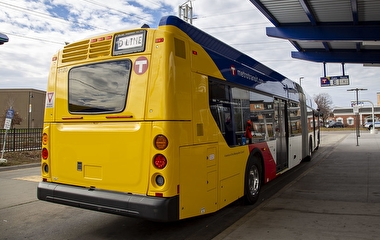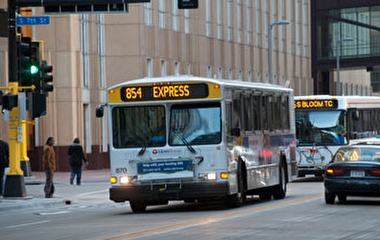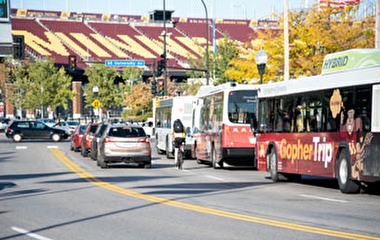The Accessibility Observatory has published three new reports measuring access to jobs by auto, transit, and biking across the United States. The reports, part of the Observatory’s ongoing Access Across America series, use data from 2019 to rank accessibility by each mode in the 50 largest US metro areas.
Highlights from the new reports include:
- Access Across America: Transit 2019 shows that access to jobs by transit increased in half of the largest US metros. Among the metropolitan areas with the most significant positive changes, Phoenix (+8.1%) and Los Angeles (+6.0%) showed a mix of positive accessibility changes from both transit investments and land use; Raleigh (+6.8%) showed accessibility increases primarily due to job growth and changes in job locations.
- Access Across America: Biking 2019 provides comparisons with accessibility data from the previous year for the first time, and some significant changes were observed in certain cities. Access to jobs by low-stress bicycle routes (separated bike lanes and paths) increased in Raleigh by a very large 111% and in Boston by 66%, while access to jobs by medium-stress bicycle routes (all bike infrastructure) in Charlotte jumped by 54% and in Raleigh by 44%.
-
Access Across America: Auto 2019 shows that access to jobs by auto increased in 78% of the 50 largest US metros. However, traffic congestion delays also increased in 62% of those cities. The Minneapolis–St. Paul metro area ranked 6th in terms of job accessibility but 28th in the reduction in job access due to congestion. Though average worker traveling by auto in the Minneapolis metro can reach 893,707 jobs within 30 minutes, those workers reach 31 percent fewer jobs in the same amount of time during congested periods.
Visit the Observatory website for more information or to download the full reports.


